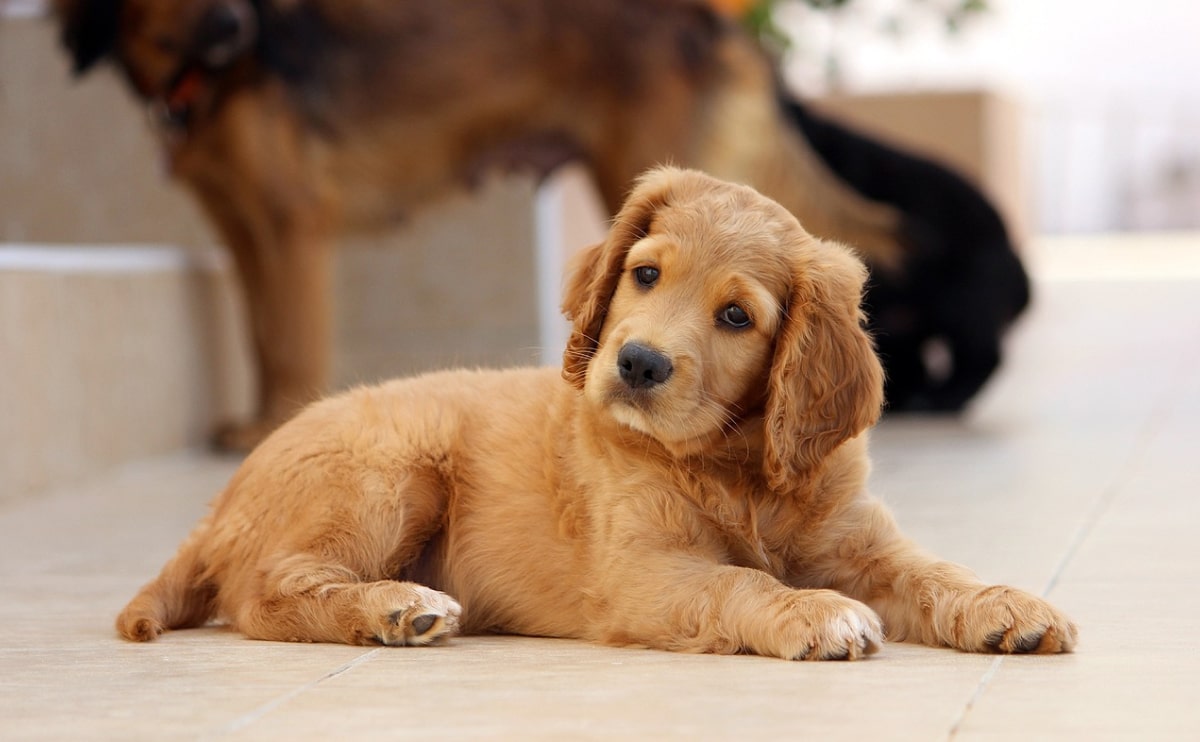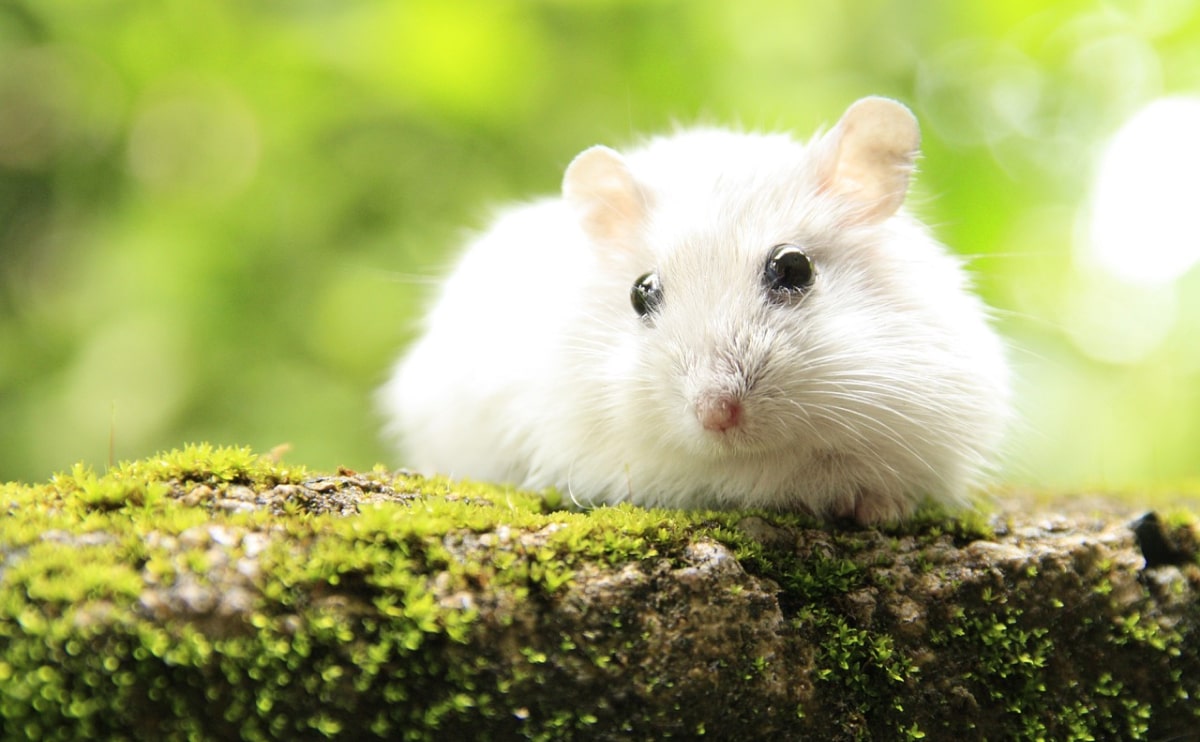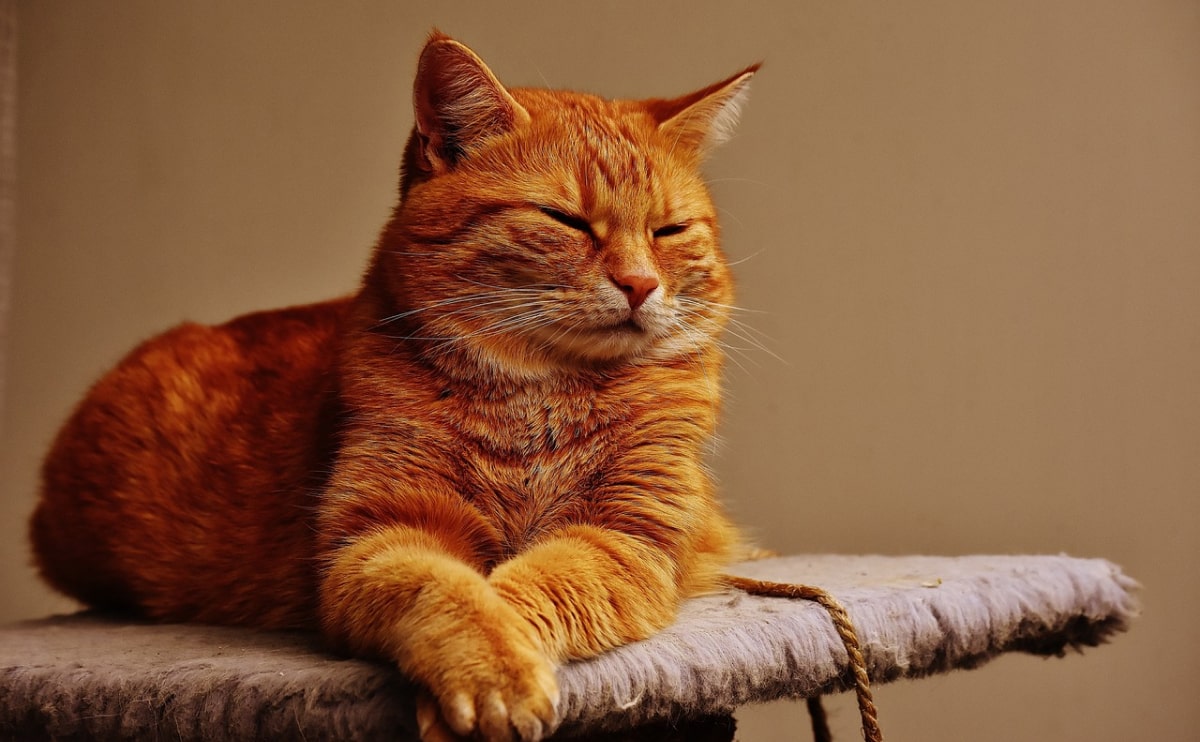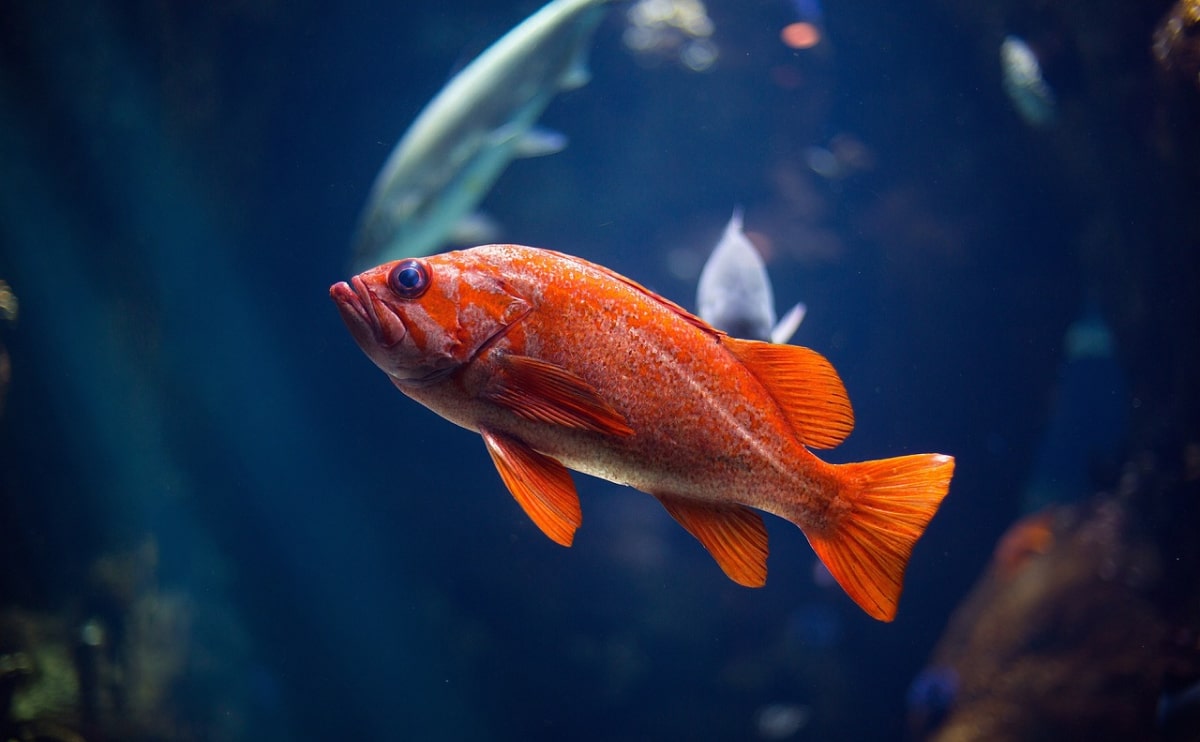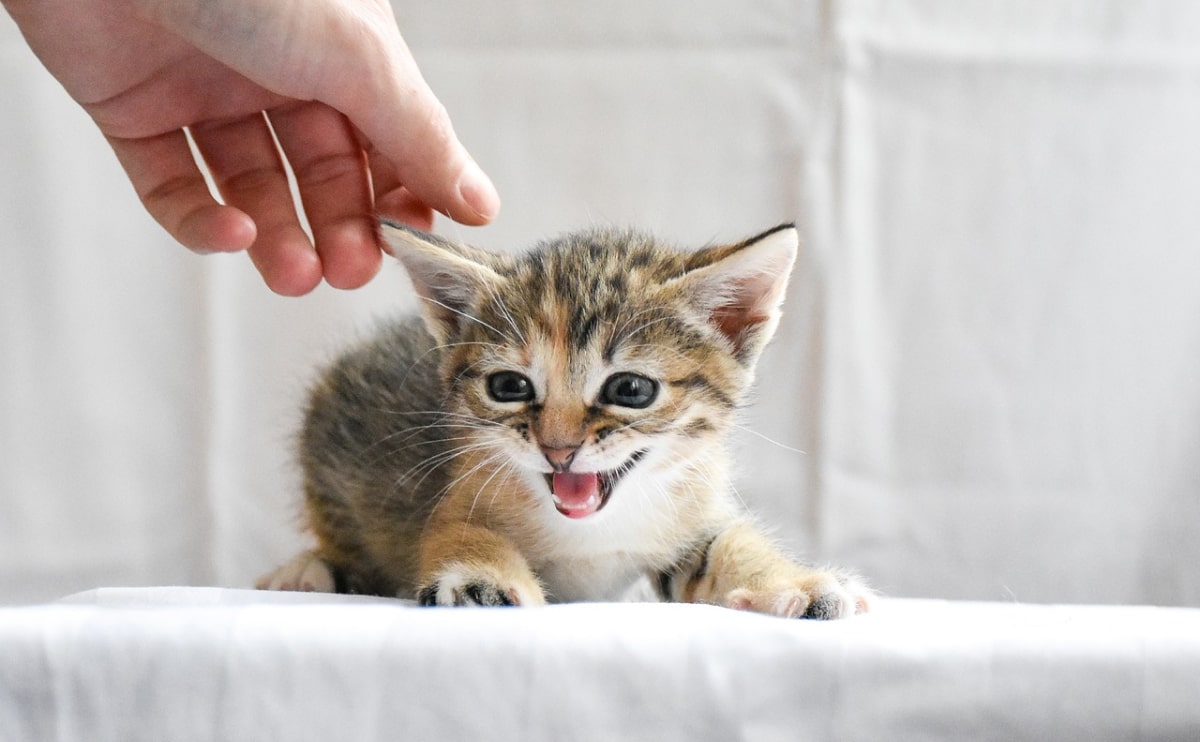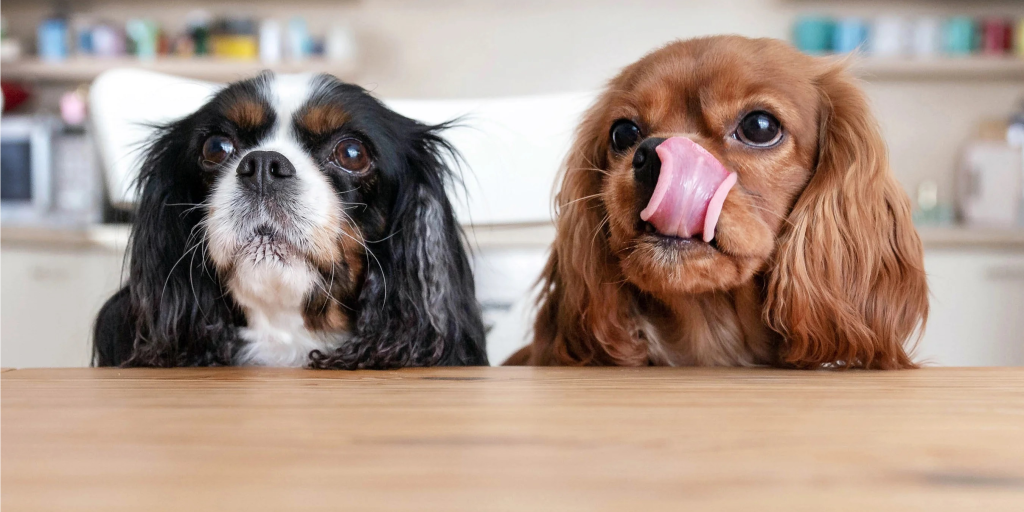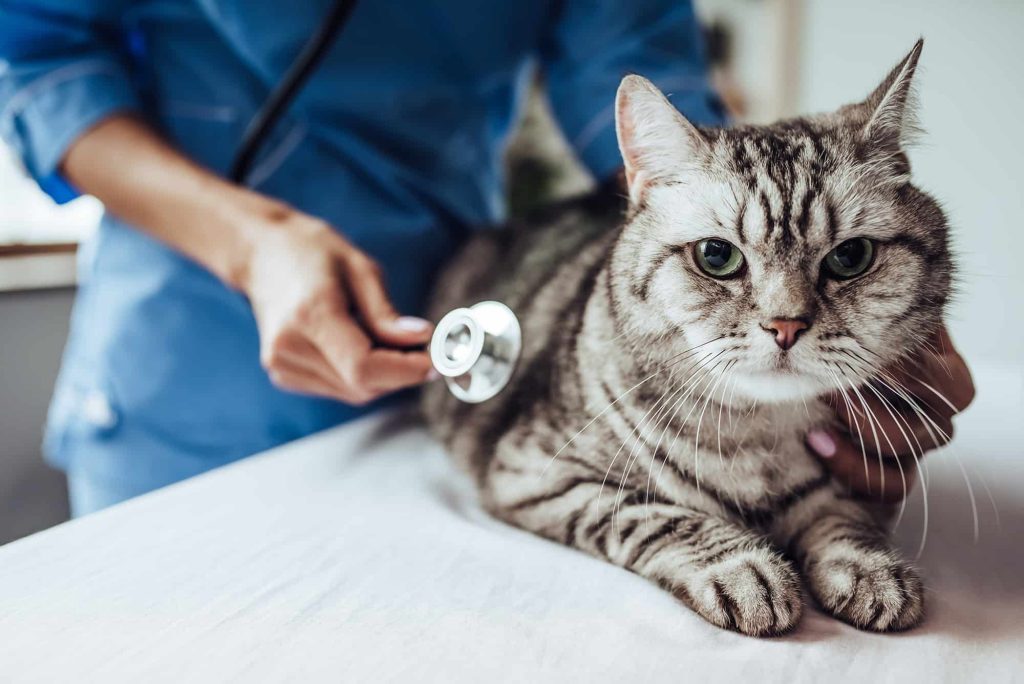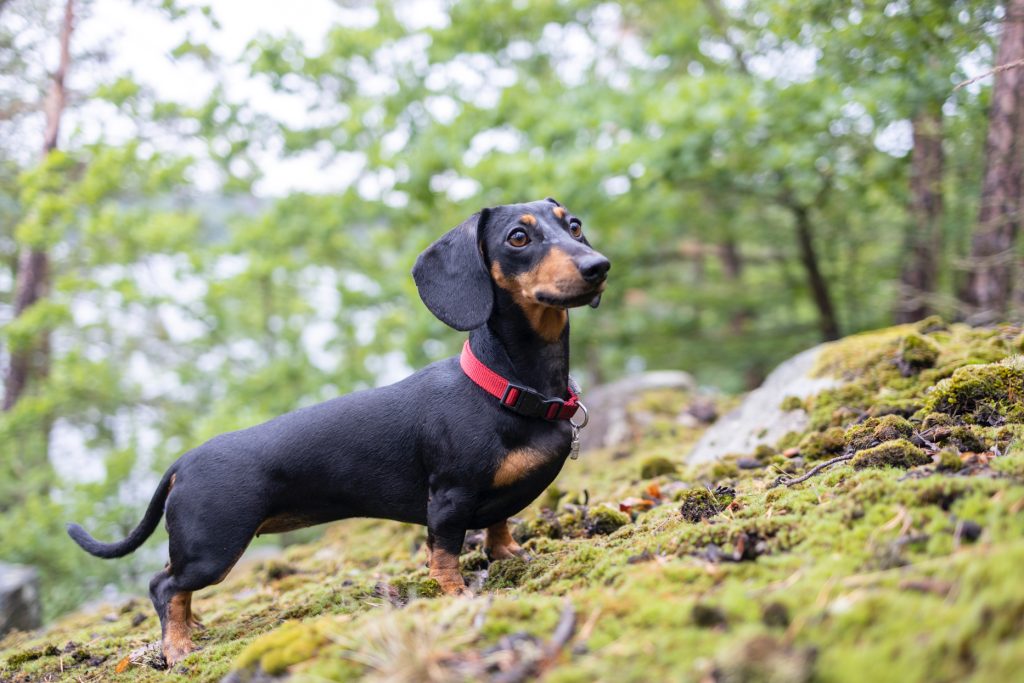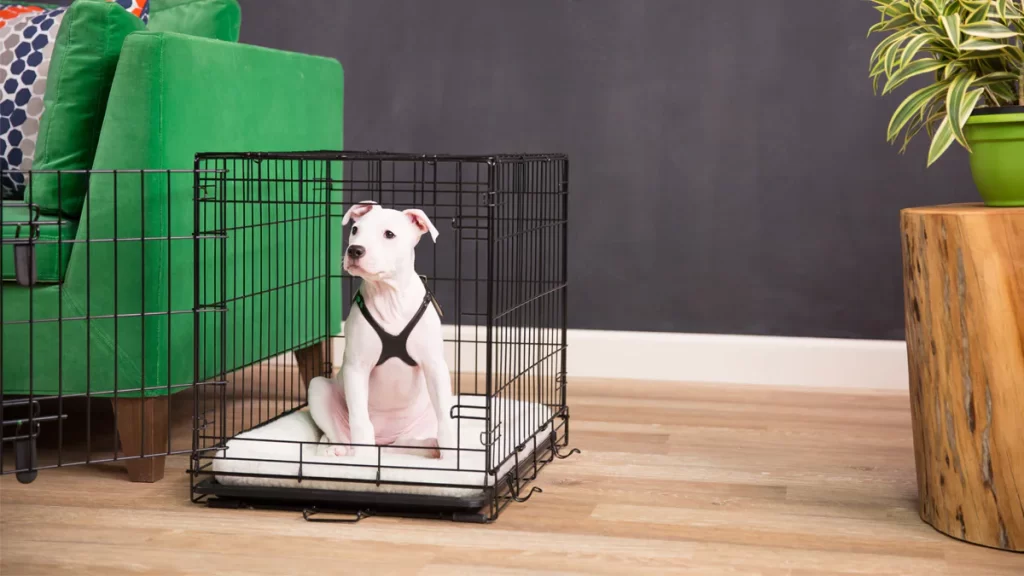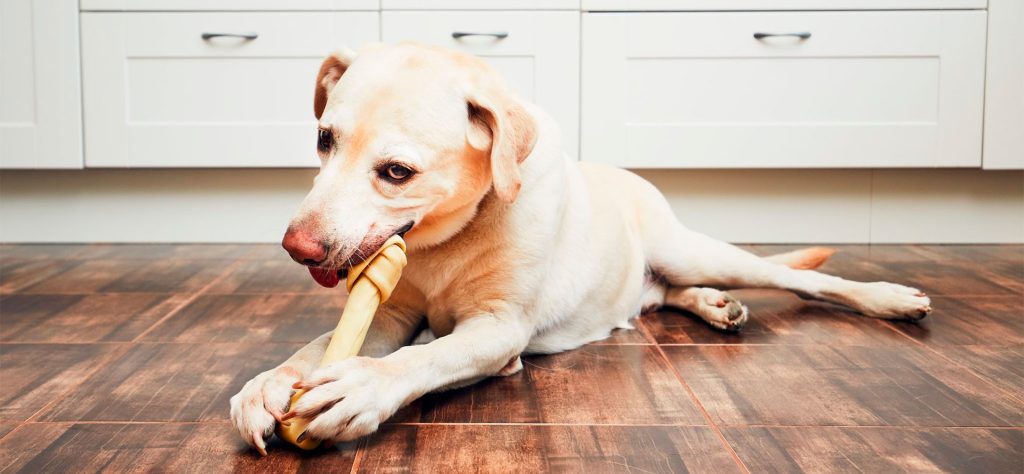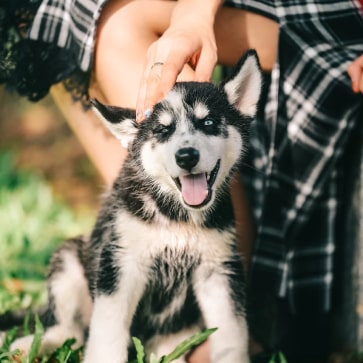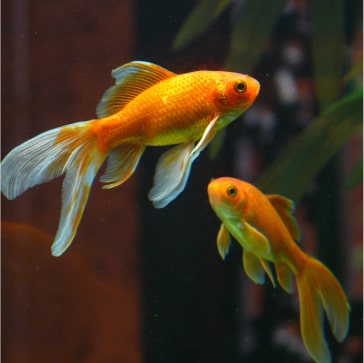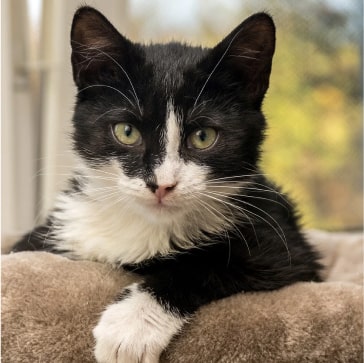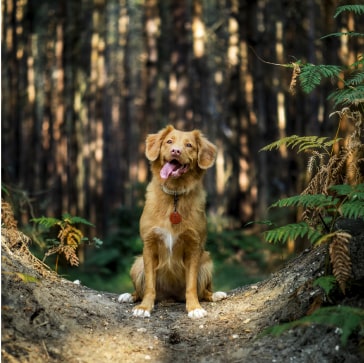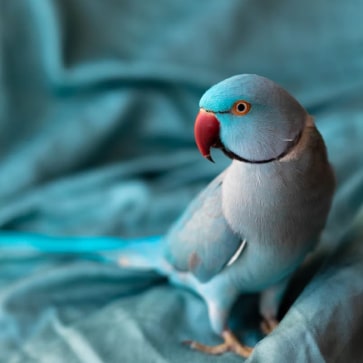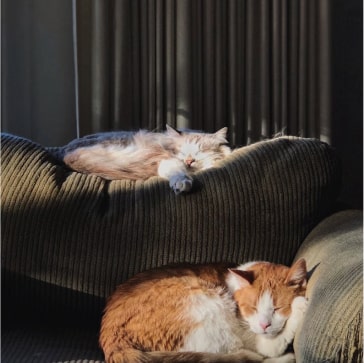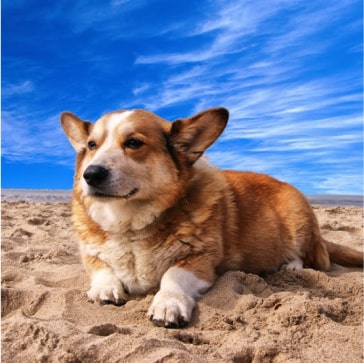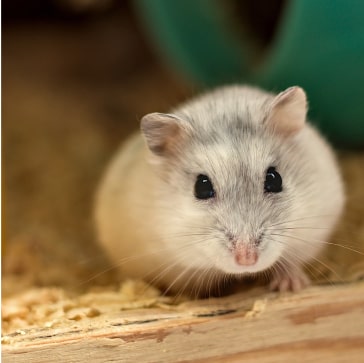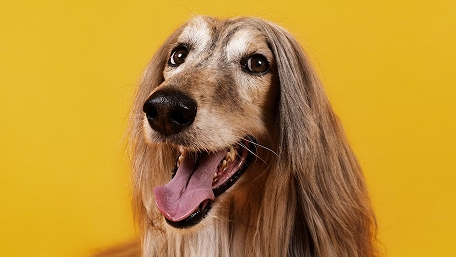Blog
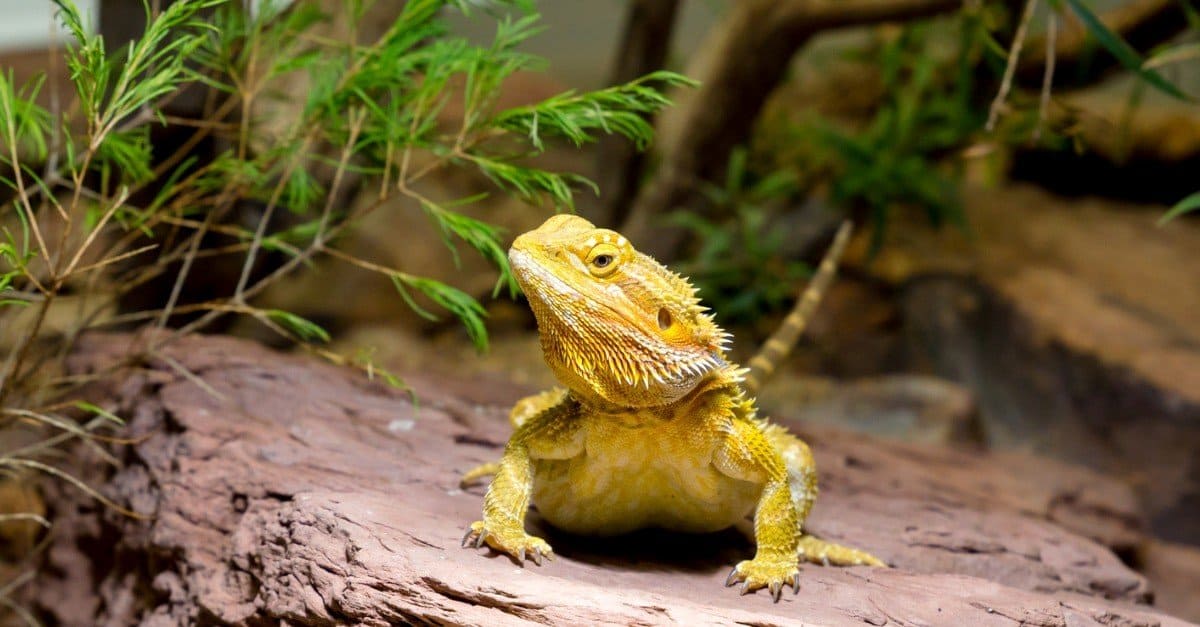
The Most Adorable Small Pet Lizards
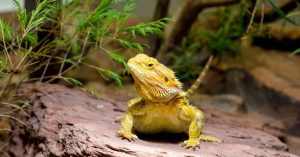
Pet lizards come in a wide variety of sizes, ranging from small leaf chameleons little larger than your fingernail to colossal monitor lizards and green iguanas.
Due to the fact that many of us have limited room in our homes, little pet lizards are the most convenient. Additionally, many of the greatest tiny pet lizards are inexpensive to purchase, easy to care for, and – due to their popularity – readily available in typical reptile stores.
Therefore, what are the best little pet lizards to consider?
1. Bearded Dragon (Pogona vitticeps)
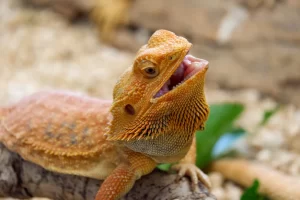
Probably the most well-known reptile on this list is the bearded dragon. While not as little as some of the other species on our list, the “beardie,” as it is sometimes referred to, has earned a particular place in the hearts of reptile aficionados.
Bearded dragons, which reach a total length of around 60cm, with half of it being tail, are appreciated for their prehistoric look and easygoing demeanor.
Indeed, bearded dragons are among the few tiny pet lizards who appear to appreciate — not just tolerate – human interaction. If you’re searching for a lizard that you’ll like touching on a daily basis, there are few better options.
2. Green Anole (Anolis carolinensis)
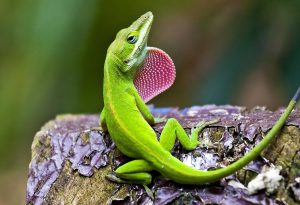
The green anole is the tiniest reptile covered in this article. It was also the first lizard I kept on my own. With a body length of only a few inches and a tail that may be twice the length of their body, they are excellent and very active pet lizards.
While this is not an ideal lizard for handling – they are flighty and fast-moving – if you’re searching for a pet lizard that will put on a spectacular performance, you won’t find a better choice.
This is for a variety of reasons. To begin, their tiny stature allows for the creation of very eye-catching displays complete with fake flora and rock faces for them to investigate.
Additionally, green anoles are renowned for the variety of behaviors they exhibit in captivity. From them waggling their legs at other anoles to the males inflating their brilliant red neck pouches, you’ll see it all.
Green Anoles are occasionally referred to as the “American Chameleon” with good cause; these little lizards can change color from a bright forest green to a dark brown. While the color shift is not as dramatic as that of a “genuine” chameleon, the truth remains that this ability to change color adds another degree of intrigue.
Finally, keep in mind that Green Anoles are frequently among the most affordable pet lizards available. This makes them excellent for readers on a budget or who wish to keep two or more lizards together to observe their interactions.
3. Leopard Gecko (Eublepharis macularius)
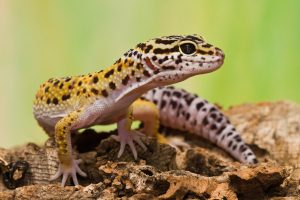
The Leopard Gecko, second only to the Bearded Dragon in popularity, has been a staple of the reptile-keeping industry for many years.
Originating in Afghanistan, the Leopard Gecko is appropriately called due to its distinctive black dots on a yellow backdrop, which make it an eye-catching reptile. The Leopard Gecko, which grows to around 6-8″ in total length, has a very short and stubby tail in which it may store fat.
Unlike the majority of gecko species seen in the reptile hobby, this species lacks sticky toe pads. As a result, it cannot climb vertical surfaces and can move fairly slowly.
These two characteristics make Leopard Geckos significantly more manageable than other gecko species – fact, this is another favorite tiny pet lizard for individuals who want to hold their pets.
Typically sluggish and gentle, these lizards may be securely held by keepers of all ages — they frequently appear to be particularly popular with youngsters and can make an excellent pet lizard for children with supervision.
4. Collared Lizards (Crotaphytus collaris)
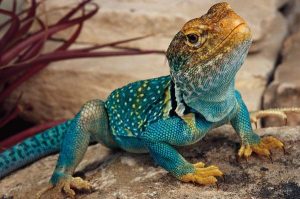
Collared lizards are indigenous to North America’s hot, arid regions. Growing to around 8″ in total length, the majority of this is made up of a lengthy tail, with the chunky body and powerful legs accounting for a far lesser part.
Collared Lizards come in a variety of distinct species. What makes this species unique is its sexual dimorphism.
Whereas the majority of pet lizards exhibit few visible indicators of sex, needing some professional knowledge to distinguish males from females, the Collared Lizard is a fairly subtle variety of blacks, greys, and browns over the most of the year.
However, during the breeding season, the reason for their moniker becomes clear. Males evolve into an amazing rainbow of colors, with their necks and shoulders showing a variety of hues, frequently including vivid sky blue, yellow, and even green.
Collared lizards, like Green Anoles, are swift and flighty, and hence are probably not the greatest tiny pet lizard for the keeper who wishes to handle their pet on a daily basis.
However, for the reptile enthusiast who likes creating lifelike vivariums and observing their pet’s behavior, the collared lizard is an excellent choice.
The author has spent several enjoyable hours constructing desert-style habitats for Collared Lizards and has lost count of the time spent observing these fascinating lizards go about their everyday activities.
5. Crested Gecko (Correlophus ciliatus)
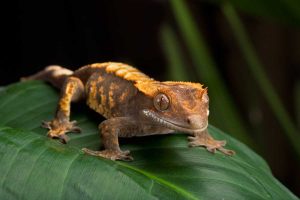
The Crested Gecko of New Caledonia has gained attention in recent years.
These mostly arboreal lizards have an obviously “cute” look, owing to the spine crests that run down the sides of their bodies and terminate just above their eyes, like a set of luscious long eyelashes.
Because crested geckos have sticky toe pads, they may easily climb vertical glass surfaces in their cage, you must take particular care to provide an escape-proof enclosure.
Fortunately, crested geckos quickly become used to their keepers and can be handled securely, assisted by their tails and toes, which reduce the likelihood of them dropping.
Additionally, crested geckos benefit from the fact that they eat on nectar in the field rather than live insects. While captive specimens will undoubtedly swallow some juicy insects when presented with them, the vast bulk of their diet may be made up of artificial nectar solution. This is offered in little “milk creamer” packets at reptile retailers.
As a result, the crested gecko is undoubtedly one of the easiest lizards to feed as a pet — this is especially advantageous if you are fearful of handling live insects or live in an area where obtaining livefood is difficult.
6. Yemen Chameleon (Chamaeleo calyptratus)
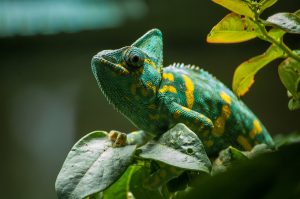
Indeed, chameleons have gained a rather dubious image through the years. Numerous keepers have reported difficulty keeping them, and their unique requirements do require significantly more knowledge than those of simpler lizards like as bearded dragons.
Obviously, the Yemen Chameleon is an exception, since it is one of the simplest chameleons to care (and even reproduce) in captivity. Indeed, Yemen Chameleons are so easy to care for and multiply that they are a fairly regular sight in most reptile shops these days.
If you’re looking for a “real” chameleon (as opposed to a Green Anole), the Yemen Chameleon is definitely your best small pet lizard choice.
Having said that, conduct thorough research before to making your purchase, since most of the general advice that applies to 90%+ of all pet lizards may not apply to your chameleon. For instance, chameleons rarely drink from a water dish, preferring instead a drip-feed system.
While this specialized equipment does add to the cost of maintaining chameleons in contrast to other lizards of comparable size, the advantages of performing a good job cannot be ignored.
7. Uromastyx
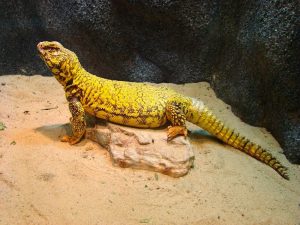
Finally, in our list of the greatest little pet lizards, we include the Australian lizard tribe known as “Uromastyx.” This genus of lizards is extremely varied, however the majority grow little larger than a bearded dragon.
Originating in hot and dry regions of Oceania, these lizards want it heated – with a basking place of at least 35’C. Prepare to witness an increase in your power bill as a result of investing in Uromastyx!
What, therefore, makes the Uromastyx a little lizard deserving of your attention? To begin, these magnificent reptiles have an unusual – almost Jurassic – look. Numerous species are becoming more available in a variety of color varieties, with bright orange and red examples not uncommon.
However, it may be said that Uromastyx are comparable to bearded dragons in terms of ease of handling. These big, confident lizards appear to like human interaction; they will approach the glass at feeding time to greet you and will settle quietly on your palm.
If you’re seeking for similar advantages to Bearded Dragons but prefer something a little “different,” these little lizards may be exactly the ticket.
Which Small Pet Lizard Is the Best?
We’ve now addressed many of the more often encountered little pet lizards. As you can see, these species range in size from really small lizards to somewhat bigger and more readily handled ones. Which little lizard is the best?
This is a question that can only be answered by you. Only you can determine the ideal lizard for your scenario based on the reason you want a pet lizard in the first place (to touch or observe? ), the species you find physically appealing, and your budget.
Utilize the aforementioned list as a jumping-off point for your quest, and conduct as much research as possible on each lizard species. Visit reptile businesses in your neighborhood and build connections on forums to ensure that you make the best option possible before taking your new pet lizard home.
Whichever path you take, allow me to wish you the best of luck – and to warmly welcome you to the fascinating world of reptile care!
Petstup is an official seller of the many well-known pets brands, focused on improving the lives of pets, pet parents and our partners. We proudly offer a large variety of pet nutrition products and supplies competitively priced for dogs, cats, reptiles, fish, birds and small animals. Petstup is your one stop shop for all your pet’s needs. All our products are authentic, and pass all mandatory United States standards and veterinary practices. We run several warehouses across the United States to serve you better and faster.



